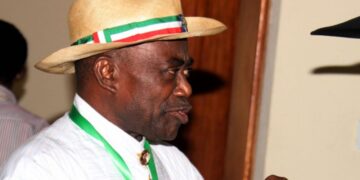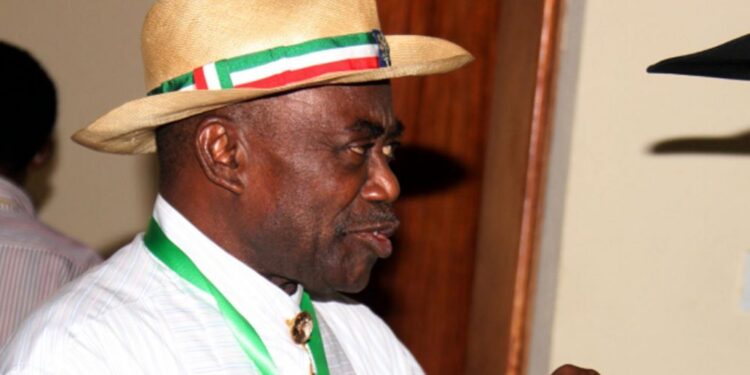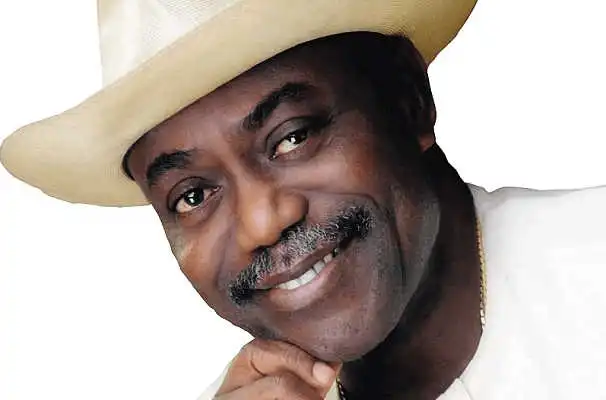Peter Otunuya Odili, born on August 15, 1948, is a distinguished Nigerian politician and doctor whose career has left a lasting impact on governance and public service in Nigeria.
With a background rooted in medicine and a deep commitment to leadership, Odili’s journey from the medical profession to the political space underscores his dedication to serving his people.
He gained national prominence as the third elected Governor of Rivers State, serving two consecutive terms from May 29, 1999, to May 29, 2007. His administration came at a pivotal time in Nigeria’s democratic history, following the country’s transition from military rule to civilian governance in 1999.
As a steadfast member of the Peoples Democratic Party (PDP), Odili has been a central figure in shaping political discourse and governance in Nigeria. His tenure as governor, marked by significant challenges and achievements, cemented his reputation as a prominent voice in Nigerian politics and a leader whose influence extends beyond the borders of Rivers State.
Peter Odili Early Life and Education
Peter Odili was born in the Ogba/Egbema/Ndoni Local Government Area of Rivers State, Southern Nigeria. He pursued his education with a focus on medicine, graduating from the Medical School of the University of Nigeria, Nsukka.
Odili furthered his studies in Tropical Medicine at the prestigious University of Liverpool, United Kingdom, equipping him with a solid foundation for his medical and political careers. Peter Odili is married to Justice Mary Ukaego Odili, a respected legal professional.
Peter Odili Early Political Career
Odili’s political journey began in 1988/89 when he was elected as a member and leader of the Rivers State Delegates to the Constituent Assembly. His political influence grew in 1992 when he became the Deputy Governor of Rivers State.
During the transition period following the Nigerian Third Republic, Odili played an instrumental role in the National Constitutional Conference, serving as the Conference Committee Chairman on State Creation. He also served as the National Secretary of the now-defunct Democratic Party of Nigeria (DPN), marking his emergence as a key political strategist.
Governorship of Rivers State
Odili was elected as the Governor of Rivers State in the 1999 gubernatorial elections and was reelected in April 2003. His tenure was marked by both significant challenges and controversies:
1. Security and Human Rights Issues
During his administration, Rivers State faced increasing insecurity, with conflicts arising from rival armed groups and cult activities. In September 2004, Amnesty International expressed concerns about the deteriorating human rights situation in the state.
Tragedy struck in December 2004 when armed youths, reportedly members of the Egbesu cult, attacked Odili’s convoy, resulting in the death of two individuals, including a police officer.
2. Economic and Governance Criticism
Despite Rivers State being one of the wealthiest in Nigeria due to its oil resources, Odili’s administration faced criticism for failing to achieve substantial infrastructural development. Reports by the Rivers State Truth and Reconciliation Commission linked governance issues during his tenure to cultism, failed leadership, and chieftaincy disputes.
3. Corruption Allegations
In 2007, the Economic and Financial Crimes Commission (EFCC) accused Odili of fraud, money laundering, and abuse of office. While Odili denied the allegations, legal battles ensued, with courts issuing rulings that limited EFCC’s ability to investigate state finances during his administration.
Presidential Ambitions and Political Alliances
In November 2006, Odili declared his intention to contest the 2007 presidential election under the PDP. However, he withdrew from the race on the eve of the party’s primaries, paving the way for Umaru Musa Yar’Adua to emerge as the PDP flag bearer.
In 2010, reports suggested Odili was considered as a potential vice-presidential running mate for former military head of state Ibrahim Babangida in the 2011 elections, reflecting his enduring influence in Nigerian politics.
Post-Governorship Legal Battles and Controversies
Odili’s post-governorship years were marked by continued legal and political challenges:
In March 2008, a Port Harcourt court ruled that the EFCC could not investigate state finances during his tenure.
In December 2009, Odili faced allegations of election malpractice following claims made by a professional kidnapper in a New York Times article. Odili denied these accusations.
Peter Odili Legacy and Impact
Peter Odili’s tenure as Governor of Rivers State remains a subject of debate. While his contributions to state governance and his medical background underscore his dedication to public service, his administration faced persistent criticisms of corruption and mismanagement.
Odili’s influence in Nigerian politics continues to be felt through his political alliances, legal battles, and the roles played by his family, particularly his wife, Justice Mary Odili, in Nigeria’s judiciary.
Final Thoughts
Peter Otunuya Odili’s life and career exemplify the complexities of leadership in Nigeria’s dynamic political landscape. From his humble beginnings in Rivers State to becoming a two-term governor, Odili’s journey reflects a blend of ambition, service, and resilience.
His tenure as Governor of Rivers State came with significant challenges, including issues of insecurity, governance, and allegations of corruption. Yet, his contributions to the political and medical fields remain noteworthy. While his career has faced its fair share of controversies, his role in shaping the history and politics of Rivers State and Nigeria at large cannot be overlooked.
















